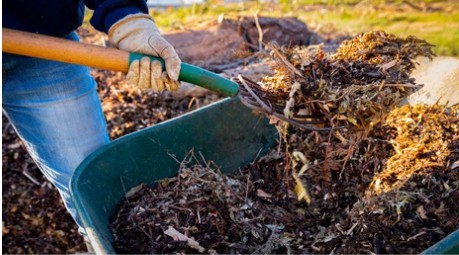Poor soil structure means that over time the soil can become compacted, preventing proper root growth. Soil may lack organic matter and be too sandy, leading to poor plant nutrition. Growing plants will eventually deplete the minerals and nutrients naturally present, so it is critical to condition the soil to keep it pristine and healthy.
Lifeasible offers research services on mushroom compost as a soil conditioner. By converting mushroom residues into soil conditioners that improve soil water retention and aeration and regulate soil pH. The aim is to turn mushroom residues into valuable resources.

What Is a Soil Conditioner?
A soil conditioner is a material used in the soil to improve the physical, chemical, and biological properties of the soil. Commercial soil improvers are usually compound preparations, where a particular improver has a variety of properties and effects simultaneously, with the main function of improving soil impediments, taking into account soil fertility and plant nutrition, and even microbial conditions, with a small amount of added fertilizer or microbial preparation.
Our Services
As mushrooms extract most of their nutrients from the substrate, they condition the soil. Our scientists have conducted extensive research into mushrooms' use as soil conditioner. The main research services we offer are listed below and professionally tailored to your needs.
Service Content
- Application of mushroom residues directly to the soil as a soil improver
- Composting of the residue and application as a soil conditioner
Service Workflow
Our process for producing soil improvers using mushroom residues as the main raw material is shown in the diagram:

Mushroom
residue
Deodorant
Sterilizing agent
Mixing
Fermentation
Drying
Final product
Crushing
Fly ash blending
Applications of Soil Conditioners
- Improve the soil's physical and chemical properties
- By adding mycorrhizal remnants as an organic component to the soil, you can improve its water-holding capacity, increase its permeability, improve its physical properties, and promote plant growth.
Our Advantages
- Incorporating our bacterial residues into your soil will provide the following benefits.
- This soil conditioner contains organic nitrogen, phosphorus, potassium, and trace elements.
- The organic colloid of humic acid produced by fermentation and maturation can increase the agglomerate structure of the soil, improve soil structure, loosen the soil, provide good air permeability, eliminate slagging, increase soil temperature, facilitate moisture retention, coordinate water, fertilizer, air, and heat and create a good soil environment for plant growth.
- As compost retains moisture, it reduces crop watering.
- Pasteurized or sterilized, no mold or bacteria are introduced into your soil.
Contact Us
Lifeasible is researching the maximum potential of mushrooms in soil applications. We try to improve the soil by adding mushroom residues to our soil improvers. We are your trusted partner in mushroom soil amendment research. If you are interested in our services, please contact us for a more detailed description of our services.
For research or industrial raw materials, not for personal medical use!




